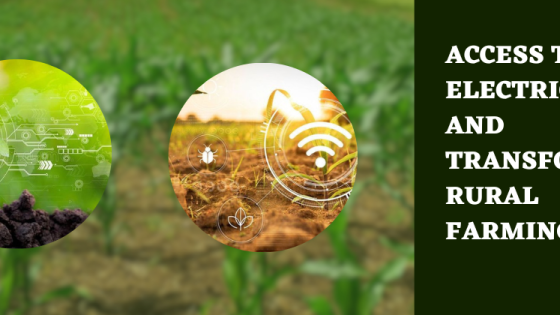
Why agricultural financing is significant
Around sixty percent of the African workforce and a sizable amount of the continent’s gross domestic product (GDP) are directly or indirectly tied to the agricultural sector. Despite its significance, African agriculture has been hampered by a number of factors, including a lack of resources. By giving farmers access to funds for increased output, technological advancements, and business expansion, agricultural financing is an essential factor in the growth and development of African economies.
Why most African farmers don’t have access to financing
In order to boost output, acquire supplies, buy machinery and equipment, and mitigate risks, farmers must have access to financial resources. Nevertheless, many African farmers cannot get the finance they need, and those who do often face exorbitant interest rates, small loan amounts, and tight repayment terms. As a result of these problems, agricultural output is poor, value addition is restricted, and the industry struggles to compete.
Changes that agricultural financing brings
Financing for agriculture can assist overcome these difficulties by giving farmers access to cheap borrowing they can utilise to boost output and invest in cutting-edge technology. With this money, farmers can broaden their operations, plant more varieties of crops, and add more value to their output. As an added benefit, agricultural financing can aid in risk management by giving farmers access to crop insurance and other financial products that can cushion the blow of crop failures and market price variations.
Rural development is a key component to Africa’s economic growth, and agricultural financing can play a significant part in this. Poverty, poor infrastructure, and a lack of economic activity are common in Africa’s rural areas. Farmers can invest in their businesses, which in turn creates jobs and increases revenue, thanks to the access to finance made possible by agricultural financing, which in turn stimulates economic growth. This has the potential to boost rural economies, enhance infrastructure, and raise overall quality of life.
Why this is necessary.
Food security in Africa can be improved greatly with the help of agricultural funding. More than 1.2 billion people call Africa home, so feeding them cheaply and healthily must be a priority. Financing agriculture has the potential to raise food production, enhance food processing, and lessen food waste, all of which contribute to better food safety and diet quality.
How Agricultural financing can improve Africa’s economies
The role of agricultural financing in developing Africa’s economies has come to be more widely acknowledged in recent years. Many efforts have been launched by governments, development partners, and financial institutions to expand farmers’ access to credit. The Affirmative Financial Action for Women in Africa (AFAWA) programme, for instance, was initiated by the African Development Bank (AfDB) with the goal of providing $5 billion in financing to enterprises owned by women in Africa, particularly in the agricultural industry. The initiative also aims to boost women’s financial literacy and broaden their access to financial services.
Other ways in which farmers can gain access to capital
The Africa Agri-Finance Market Place is another initiative by the International Finance Corporation (IFC) with the same goal of expanding the ways in which agricultural Entrepreneurs can gain access to capital. Via the platform, SMEs are linked with investors who can help them gain access to capital and resources.
Putting an emphasis on why obtaining capital in the agricultural sector is essential
Finally, agricultural funding is essential in reshaping African economies. It gives farmers the financial means to upgrade their operations with cutting-edge machinery and methods, raise output, and extend their customer base. It’s good for the economy, food security, and the expansion of rural areas. Yet, more work remains to be done before all African farmers may easily obtain cheap credit. It is imperative that governments, development partners, and financial institutions keep funding projects that broaden farmers’ (especially women’s and small and medium-sized enterprises) access to credit. They can help improve Africa’s economy by realising the potential of the continent’s agricultural sector.






















